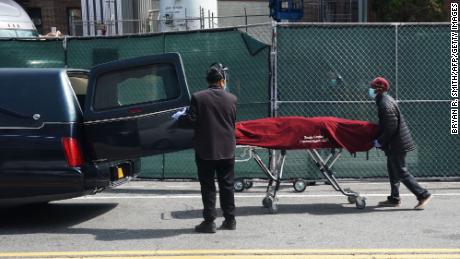Seven states took that guidance further, and they're requiring residents to cover their faces when they visit essential businesses or use public transportation. All of the following orders from governors come with the same guidance: Masks are no substitute for social distancing — maintaining at least six feet of distance from other people — and staying home. But they're better than nothing, and in these states, you can't work at or enter a business without them. There are few exceptions, though people who can't wear masks for medial reasons are exempt.
Connecticut
In effect as of: April 20 The state's mask requirement applies to any residents who are in a public place, over age 2 and can't maintain at least six feet of distance from other people. The same rules apply to people who use public transportation, taxis or rideshare services. The state's Department of Economic and Community Development released mask guidelines for essential workers, too: Employees at essential businesses must wear masks or material that covers their mouth and nose at all times while at work. Employers must provide masks or the materials to make them. All customers under age 2 must wear them, too.People who refuse to wear masks aren't required to provide proof that they're medically exempt. In effect as of: April 20Customers at essential businesses are required to wear cloth face coverings. Employees who interact with customers or goods at those businesses must wear them, too. Those measures are in addition to keeping six feet of distance and limiting the number of customers allowed in an establishment. Anyone who violates those rules could face a fine up to $5,000 or up to a year in prison if found guilty, according to Gov. David Ige's order. In effect as of: April 18Commuters and employees must wear face coverings while using Maryland public transit, according to Gov. Larry Hogan's order. Employees and customers over age 9 must wear face coverings inside essential businesses, though adults accompanying young children should make an effort to get them to wear a mask if they're in an essential business.
New Jersey
In effect as of: April 8The first state to introduce such a mandate, New Jersey requires that customers and employees wear face coverings at essential businesses and construction sites. Businesses must provide them to employees and deny entry to any customers who refuse to wear them (though the customer can still pick up their food or medicine by alternate, contact-free means). Employees and commuters on New Jersey public transmit and private carriers must wear face coverings while on trains, buses and light rails. If they refuse to wear them, they may be denied entry.  In effect as of: April 17All residents over age 2 must wear masks or face coverings when they're in public and social distancing isn't possible (though maintaining at least six feet of distance is always preferred). The state has a law on the books banning masks and "unusual or unnatural attire or facial alteration" in public, though it allows masks if police or officials grant permission to wear them. In this case, residents have Gov. Andrew Cuomo's permission to wear masks.
In effect as of: April 17All residents over age 2 must wear masks or face coverings when they're in public and social distancing isn't possible (though maintaining at least six feet of distance is always preferred). The state has a law on the books banning masks and "unusual or unnatural attire or facial alteration" in public, though it allows masks if police or officials grant permission to wear them. In this case, residents have Gov. Andrew Cuomo's permission to wear masks.
Pennsylvania
In effect as of: April 19Essential businesses must provide masks for their employees and require them to wear the masks, according to the order from Pennsylvania's Department of Health. Customers at these businesses must wear masks while on the premises or be denied entry.
Rhode Island
In effect as of: April 18Employees of essential businesses are required to wear cloth face coverings unless that employee can coRead More – Source
[contf] [contfnew] 
cnn
[contfnewc] [contfnewc]






